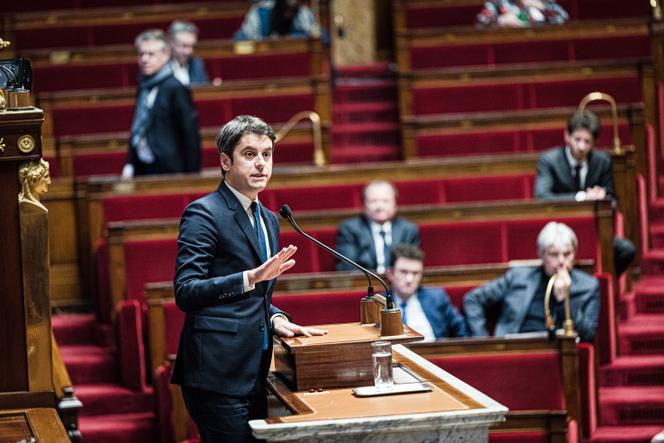


An agreement, yes, but no consensus on the terms of support for Kyiv. The debate and vote on the bilateral security agreement between France and Ukraine, held at the Assemblée Nationale on Tuesday, March 12 at the government's request, confirmed the depth of dissension permeating the French political landscape over how to respond to the Russian invasion.
At the opening of the debate – conducted under Article 50-1 of the French Constitution – Prime Minister Gabriel Attal gave a half-hour speech, hammering home the importance of the support of the nation's representatives for this agreement signed on February 16. "To vote against it is to send a signal to our allies that France is turning its back on its commitment and on its history. [...] To abstain is to shirk one's responsibilities to history, to betray what is most dear to us," said Attal, as Ukraine's ambassador to France, Vadym Omelchenko, looked on. The agreement provides for a ten-year commitment from France to Ukraine, including €3 billion in military support scheduled from 2024.
The president of the Assemblée's foreign affairs committee, Jean-Louis Bourlanges (MoDem, center and part of the government coalition), also urged MPs to support the agreement, all while stressing that it was "more of a political commitment than a bilateral agreement to be formally ratified or approved," as the MPs' vote was non-binding.
In the end, the text received the support of a majority of MPs, with 372 voting in favor and 99 against. Elected representatives from the presidential coalition, the Parti Socialiste (PS, left) and Les Républicains (LR, right) almost all voted in favor. Those from La France Insoumise (LFI, radical left) and the Parti Communiste rejected the agreement, which had been modeled on those already made with seven other Western countries, including Germany, Canada and Italy. While the result of this symbolic vote comes as no surprise, it does reignite the debate over the left's divergent positions on international policy issues. More specifically, in the case of the Russian-Ukrainian conflict, opposition to Ukraine's eventual integration into the European Union and NATO.
The 88 Rassemblement National (RN, far-right) MPs, meanwhile, saw fit to abstain, citing the same reasoning. While evoking her support for the "Ukrainian people," the president of the RN group of MPs at the Assemblée, Marine Le Pen, declared herself to be on the side of "millions of worried French people," to the uproar of the Emmanuel Macron-aligned MPs.
You have 64.14% of this article left to read. The rest is for subscribers only.
